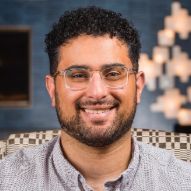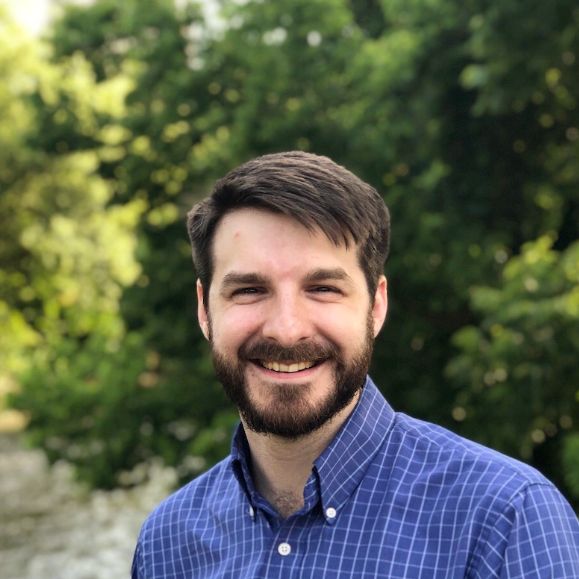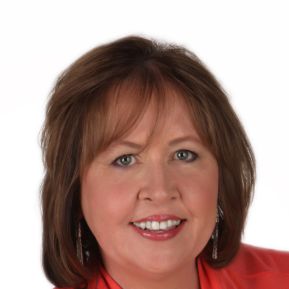Finding Support for Obsessive-Compulsive Disorder (OCD) in Detroit
Living with Obsessive-Compulsive Disorder (OCD) in Detroit can feel overwhelming and isolating, but you’re not alone. MiResource is here to help, making it simple to connect with therapists in Detroit for care that fits your life, both online and in-person. You’re in the right place to find trusted support and take the next step at your pace.
An Overview of Obsessive-Compulsive Disorder (OCD)
Obsessive-compulsive disorder (OCD) involves intrusive, distressing thoughts and repetitive behaviors (compulsions) that can take over daily life. It matters because untreated Obsessive-Compulsive Disorder (OCD) can cause significant anxiety, strain relationships, and make work, school, or home routines in Detroit feel overwhelming. Effective therapies like cognitive behavioral therapy and exposure and response prevention can help you regain control, with local Detroit providers offering compassionate, evidence-based care.
Defining Obsessive-Compulsive Disorder (OCD)
Obsessive-compulsive disorder (OCD) is a mental health condition where people have unwanted, upsetting thoughts and feel driven to do repeated actions to reduce distress, even when they don’t want to. Hallmark symptoms include intrusive worries about germs or harm, needing things to feel “just right,” and rituals like excessive handwashing, checking locks, counting, or arranging items. In day-to-day life in Detroit, Obsessive-Compulsive Disorder (OCD) can make it hard to leave the house on time, focus at work or school, use public transit or shared spaces, or enjoy family time because routines and rituals take over. Authoritative sources like the National Institute of Mental Health, the American Psychiatric Association’s DSM-5, and the International Obsessive-Compulsive Disorder (OCD) Foundation describe Obsessive-Compulsive Disorder (OCD) as common, treatable, and often helped by exposure and response prevention therapy and sometimes medication. If you’re seeking support in Detroit, consider exploring the broader Obsessive-Compulsive Disorder (OCD) therapy resources on MiResource.
Benefits of Therapy for Obsessive-Compulsive Disorder (OCD)
Therapy helps people with Obsessive-Compulsive Disorder (OCD) reduce intrusive thoughts and compulsions, regain daily functioning, and feel less alone in Detroit. Exposure and Response Prevention (ERP) teaches you to face triggers without rituals, cutting time spent on compulsions and building confidence. Cognitive Behavioral Therapy (CBT) helps you challenge obsessive thinking, develop practical coping skills, and lower anxiety so work, school, and relationships improve. Acceptance and Commitment Therapy (ACT) and mindfulness-based strategies build tolerance for uncertainty, reduce rumination, and help you act on your values instead of fear. Therapy works: with consistent, evidence-based care, symptoms lessen, hope grows, and life becomes more flexible and fulfilling.
The Therapy Journey – What to Expect
Starting therapy for Obsessive-Compulsive Disorder (OCD) in Detroit begins with a compassionate initial assessment where you can share your concerns, history, and daily challenges, so your clinician can understand what matters most to you. Together, you’ll set clear, realistic goals—such as reducing the time spent on rituals or feeling more in control—so progress feels measurable and meaningful. Treatment often includes evidence-based approaches like Exposure and Response Prevention (ERP), Cognitive Behavioral Therapy (CBT), and sometimes Acceptance and Commitment Therapy (ACT), tailored to your needs and pace. Ongoing sessions are collaborative and structured, with practice between visits and regular check-ins to adjust strategies as you grow. You can expect steady, step-by-step progress, supportive guidance, and a plan that fits your life in Detroit.
Tips for Choosing the Right Therapist in Detroit
On MiResource, enter Detroit as your location and select Obsessive-Compulsive Disorder (OCD) as the condition to see relevant providers. Use the therapy approach filter to prioritize evidence-based care like ERP or CBT. Narrow results by your insurance plan to view in-network options and choose your preferred language. Set availability needs (e.g., evenings, weekends, or telehealth) and refine by Detroit neighborhoods such as Midtown, Corktown, or Southwest Detroit. Open profiles, compare specialties, fees, and formats, and reach out or save matches—personal fit matters as much as credentials. Start exploring the directory now to find an Obsessive-Compulsive Disorder (OCD) specialist in Detroit who feels right for you.
Why a Local Detroit Therapist Can Make a Difference
Detroit’s resilience, cultural pride, and tight-knit neighborhoods shape how many residents approach mental health and Obsessive-Compulsive Disorder (OCD). From community-centered spaces like Eastern Market and the Riverwalk to faith-based support in areas like Corktown and Southwest, local therapists understand family dynamics, privacy concerns, and stigma that can impact Obsessive-Compulsive Disorder (OCD) care. They’re attuned to stressors tied to Detroit’s industrial work rhythms, caregiving roles, and multigenerational households, tailoring exposure and response prevention (ERP) to fit real daily routines. Familiarity with local schools, unions, and faith communities helps clinicians engage supports that matter for sticking with treatment.
Getting to care in Detroit often means planning around DDOT and SMART buses, the QLINE on Woodward, and the People Mover downtown, plus traffic on I‑75, I‑94, and the Lodge. Winter snow, ice, and spring potholes can disrupt telehealth or home routines that fuel Obsessive-Compulsive Disorder (OCD) avoidance; in-person sessions in Midtown, New Center, or Downtown provide structured, reliable exposure opportunities. Local therapists can design on-site ERP using recognizable settings—grocery lines in Eastern Market, elevators in medical centers, or public spaces on Belle Isle—so progress transfers to your daily life. Clinics near Henry Ford Hospital or Wayne State make care accessible to students, auto workers, and healthcare staff with shift-based schedules.
Helpful resources include Detroit Wayne Integrated Health Network for access and crisis services, NAMI Metro Detroit for education and support groups, and the International OCD Foundation for therapist and program directories. Regional clinical programs with Obsessive-Compulsive Disorder (OCD) expertise include Henry Ford Behavioral Health, the Wayne State Psychology Clinic offering low-cost CBT/ERP, and the University of Michigan Anxiety Disorders Program in nearby Ann Arbor. For emergencies: call or text 988 or dial 911. Detroit emergency departments include Henry Ford Hospital ED, Detroit Receiving Hospital ED, DMC Sinai‑Grace Hospital ED, and Children’s Hospital of Michigan ED for youth.
Obsessive-Compulsive Disorder (OCD) Therapy in Detroit: FAQ Guide
When should I consider seeking help for Obsessive-Compulsive Disorder (OCD)?
Consider reaching out when obsessions or compulsions persist or worsen, take up significant time, or start interfering with your daily life, work or school, sleep, or relationships. It’s also time to seek help if you’re avoiding places or activities because of Obsessive-Compulsive Disorder (OCD), feel significant distress or guilt, or struggle to control rituals. If you have any safety concerns, including thoughts of self-harm, seek immediate help (call/text 988) and connect with a professional. Early support makes a real difference, and options include both in-person and virtual Obsessive-Compulsive Disorder (OCD) therapy in Detroit.
What if I don’t click with my therapist right away?
It’s normal not to click right away—many people try more than one therapist, and a strong therapeutic alliance is linked to better Obsessive-Compulsive Disorder (OCD) outcomes. If it doesn’t feel like a fit, you can switch; MiResource lets you compare Obsessive-Compulsive Disorder (OCD) therapists in Detroit by approach, insurance, and availability to find the best match.
Does online therapy really work for Obsessive-Compulsive Disorder (OCD)?
Yes—evidence-based treatments like ERP and CBT can be highly effective via secure online therapy, offering convenient access to Obsessive-Compulsive Disorder (OCD) specialists without travel in Detroit. Benefits include flexible scheduling, practicing exposures at home, and broader provider choice; considerations include needing reliable tech, privacy, and managing potential distractions. In-person therapy in Detroit may be preferred for severe or complex Obsessive-Compulsive Disorder (OCD), co-occurring conditions, higher-risk concerns, or when you’d benefit from intensive/IOP programs or closely guided exposures. Many people use a hybrid approach, starting online and adding local in-person sessions or medication visits as needed.
How do I prepare for my first session?
You’ve already taken a big step by reaching out—here’s how to feel ready and comfortable for your first appointment.
Steps to prepare
- Jot down your top 2–3 goals (e.g., reduce checking, spend less time on rituals, face a feared situation).
- Track a few days of obsessions, compulsions, triggers, and how long they last.
- Note past treatments, medications, and what helped or didn’t, plus any medical or cultural considerations.
- Practice a grounding or breathing exercise you can use if you feel anxious during the visit.
- Plan logistics: arrive 10–15 minutes early for forms and parking; test telehealth links if virtual.
- Set a small, realistic first-week goal you’re willing to try between sessions.
- Bring a support person if that helps, or let the therapist know you prefer to come alone.
What to bring
- ID, insurance card, payment method
- Medication list and prior records (if available)
- A symptom log and questions list
- Comfort items (water, tissues), headphones for telehealth, and a notebook
What to expect
- A collaborative, nonjudgmental conversation about your symptoms, daily impact, and history
- Education about Obsessive-Compulsive Disorder (OCD) and evidence-based care, especially Exposure and Response Prevention (ERP)
- A safety and coping plan for high-anxiety moments
- Discussion of session frequency, telehealth options, and estimated timelines
- First steps toward an exposure hierarchy tailored to you
Questions you might ask
- How do you use ERP for my type of obsessions and compulsions?
- How will we build and pace my exposure hierarchy? What happens if it feels too hard?
- How do you track progress (e.g., time spent on rituals, distress ratings)?
- What home practice will I have, and how will you support me between sessions?
- How do you involve family/partners and address reassurance-seeking?
- How do you coordinate with prescribers if I’m on medication?
- What should I do if I experience a spike in anxiety between sessions?
If you’re searching for Obsessive-Compulsive Disorder (OCD) therapy in Detroit, know that it’s normal to feel nervous—your first session is about understanding you and creating a plan that fits your life.
Can therapy truly help with Obsessive-Compulsive Disorder (OCD)?
Yes—therapy can truly help with Obsessive-Compulsive Disorder (OCD). Decades of research show that cognitive behavioral therapy, especially exposure and response prevention (ERP), leads to significant improvement for most people, with response rates around 60–70%. Benefits include fewer intrusive thoughts and rituals, more confidence and control, and better day-to-day functioning and quality of life. Working with a Detroit therapist trained in ERP/CBT, and committing to regular sessions and between-session practice, is key—progress builds steadily with consistency.













